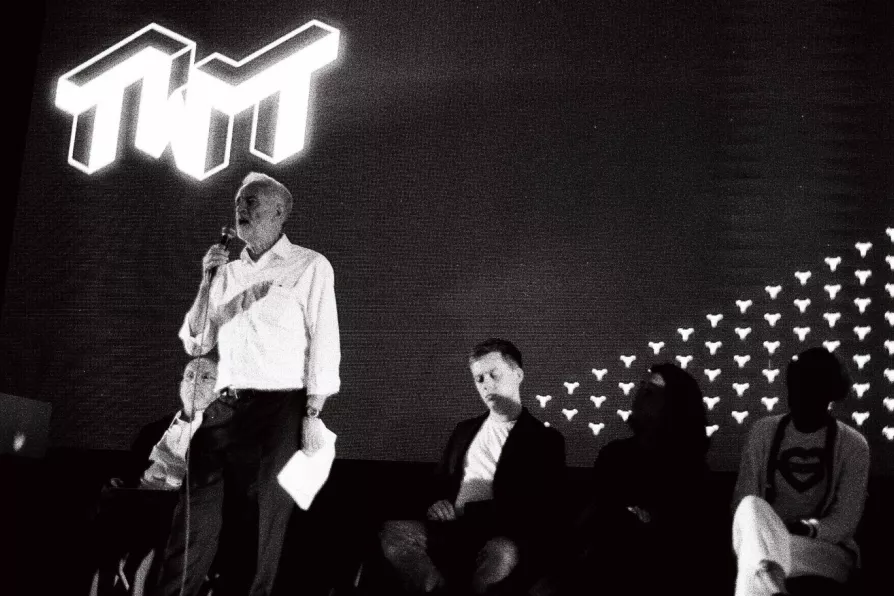LUKE FLETCHER outlines Plaid Cymru bold plans for wide-ranging policy consultations with trade unions in Wales

 Then-Labour leader Jeremy Corbyn addresses The World Transformed, a left-wing, often openly anticapitalist festival founded in 2016 that ran alongside the Labour Party conference. (All photos: Jack Witek)
Then-Labour leader Jeremy Corbyn addresses The World Transformed, a left-wing, often openly anticapitalist festival founded in 2016 that ran alongside the Labour Party conference. (All photos: Jack Witek)
ON the evening of Friday, July 5, an email announced that the left-wing festival The World Transformed (TWT) would not be running at this year’s Labour Party conference. Instead, it would take place in spring 2025, with its location and format yet to be announced.
This marks, in a sense, the end of an era. Corbynism’s final institution has become unmoored from its founding purpose: to provide a counterweight of ideas and culture to the often stultifying Labour Party conference. Despite being a mainstay of the movement for nearly a decade, its end, or complete reformulation, seems to have occurred with very little fanfare or comment.
The festival has always been somewhat reluctant to explain itself, but it seems too significant a pillar of the Corbyn era to go unremarked and perhaps its examination can reveal some key lessons from Corbynism as a whole.
TWT launched in September 2016 as a fringe event at the Labour Party’s conference in Liverpool. It emerged in the context of the Brexit vote in June and Jeremy Corbyn’s victory in a second leadership election following the so-called Chicken Coup after the referendum.
Party conferences, by their nature, have their debauched side. Long-term Labour Party members tell tales of senior officials’ indiscretions and drug-fuelled after-drinks in hotel rooms with MPs in attendance.
TWT both rejected and embraced this tendency. The partying and socialising were not some sordid secret but front and centre. A day of learning about political economy and formulating future Corbyn-led government policies was followed by a Grime rave.
By 2017, with the defeat of Theresa May’s majority and the prospect of Labour coming into government seemingly just one step away, the hype was at a fever pitch. It was a counterculture at the heart of one of the British states ’ parties of government. To a certain type of socialist, culturally heterodox and somewhat libertine, distinct from the old left nexus around the trade unions, it was irresistible.
I was a latecomer, not attending TWT until 2019 when I managed one of the venues in Brighton. By then I had already co-founded a local festival, Bristol Transformed. Despite not having attended TWT, from afar it was undeniably cool. Stories circulated among activists depicting TWT as a week-long bacchanal of intellectual discussions and late-night partying.
TWT itself had a galvanising effect. Every year, despite the synapses burnt out through a week of overindulgence, a powerful afterglow would descend on the movement. Some astute commentators warned against this, emphasising the need to keep analysis sharp and not lose clarity on political developments to the blur of collective joy pouring out of TWT each year.













